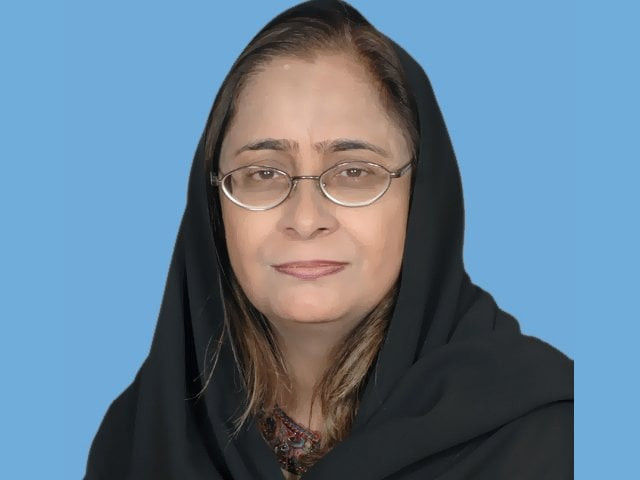'PMC bill will hinder human resource in provinces'
Minister raises objections on lack of domicile restriction for private institutes, abolition of PMDC

Sindh Health and Population Welfare Minister Dr Azra Pechuho has opposed the Pakistan Medical Commission bill recently passed in a joint session of the parliament, claiming that it will adversely affect the smaller provinces.
In a statement issued on Saturday, Dr Pechuho said the same bill had earlier been rejected by a majority vote in the Senate. "The bill was voted in when most opposition members were absent," she added.
Objecting to the bill, the minister said that the 18th Amendment, which recognises health as a provincial subject, was circumvented by this legislation.
Besides, she claimed that the PMC bill would be a 'disaster' for the smaller provinces as it allowed private medical colleges and universities to admit students irrespective of their domiciled province.
Around 5,000 doctors graduate in Sindh every year which is still not enough to meet the province's needs, according to Dr Pechuho. Only half of these graduate from public sector universities, which will be allowed to retain the provincial domicile policy, she said.
According to the minister, the private sector will no longer be restricted under this legislation and private seats in Sindh will be filled by students of other provinces, mainly Punjab. "These students will then go back to their home province, resulting in a shortage of doctors in Sindh," she opined.
She raised further objections on grounds that this legislation notified the Medical and Dental College Admission Test (MDCAT), which will be designed by the Centre based on the federal curriculum whereas each province has its own board and curriculum.
"This will disadvantage students appearing from the province's universities," she said. "The closing percentage for these exams last year was 93 per cent in Punjab and 73 per cent in Sindh, and the difference was even higher for the other smaller provinces." This indicated, according to her, that a higher number of seats in private medical colleges would go to students from Punjab.
She raised further objections that private colleges and varsities were free to set their own fee structures, making them accessible for the elite irrespective of merit.
"No student who has not passed the MDCAT will be awarded a medical or dental degree in Pakistan," she quoted the bill. Given that this requirement would be mandatory for all students enrolled in medical or dental undergraduate programmes in 2021 and thereafter, the MDCAT to be held in October 2020 will not be covered by this legislation, she claimed.
Further, according to the bill, the Pakistan Medical and Dental Council would be abolished and be replaced by the Pakistan Medical Commission.
This newly formed commission will only serve to impinge on the rights of the people of the provinces and will undermine the human resource availability in the smaller provinces to the detriment of public health, she claimed.
"I speak as a concerned citizen who views the hegemony of the federation with misgiving. My concern is not only for the people of Sindh but also Balochistan which will be worse off even than Sindh and Khyber-Pakhtunkhwa," Dr Pechuho stated.



















COMMENTS
Comments are moderated and generally will be posted if they are on-topic and not abusive.
For more information, please see our Comments FAQ